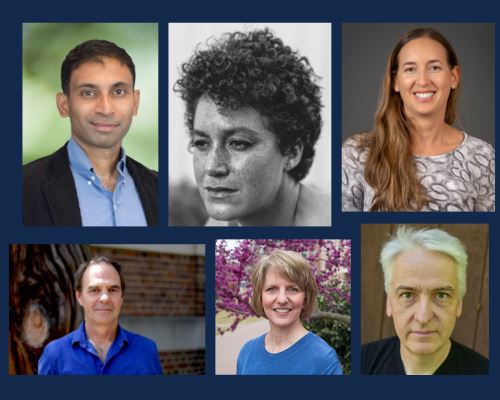
In June 2023, the UNC School of Data Science and Society announced the award recipients of its first round of seed grants designed to jump start collaborations around interdisciplinary research in data science. All proposals submitted were required to have researchers from different departments, schools, or centers and institutes and were reviewed by the school’s Research Advisory Council (RAC).
“Data science is everywhere on campus. We’re excited to fund six strong proposals, which are both bringing forth beneficial applications and examining data science’s consequences on society,” said Dean Stan Ahalt. “We’re also seeing our university’s research community’s strength in many areas of scholarship which use data science.”
The following proposals were awarded a seed grant:
“Carolina AI Literacy initiative,” Daniel Anderson, department of English and comparative literature with co-PI Dayna Durbin, University Libraries
In partnership with the University Writing Program, the University Libraries, and Carolina Digital Humanities, the Carolina AI Literacy (CAIL) initiative will drive research and interventions related to the social impacts of artificial intelligence (AI). The team will create modules to guide faculty, students, and the public as they identify, practice, reflect on, and share knowledge about AI technologies and concerns.
“Art image analysis (ArtIA): Bringing new tools and expanded ontologies to the curation, analysis, and sharing of images in the digital humanities,” Kathryn Desplanque, department of art and art history with co-PIs Chris Bizon, RENCI; Amanda Henley, University Libraries; and Corbin Jones, department of biology and School of Medicine, department of genetics
Using a large corpus of curated images of political cartoons from 1750-1850 France, the team will illustrate effective data sharing, in the digital humanities, using findability, accessibility, interoperability and reusability (FAIR) principles, with a public database.
“Understanding health trajectories of children with chronic kidney disease,” Donna Gilleskie, department of economics and Maria Diaz-Gonzalez de Ferris, School of Medicine, general pediatrics and adolescent medicine
Using new data science and econometrics techniques, the team will categorize longitudinal kidney function trajectories of children, adolescents, and young adult chronic kidney disease patients, to assess how adherence to scheduled medical visits impacts longitudinal kidney health, and to determine patterns of kidney function markers that lead to dialysis or transplant.
“Rationality and representation in language models,” Thomas Hofweber, department of philosophy and co-PI Mohit Bansal, department of computer science
Hofweber and Bansal will investigate if AI systems that are based on language models are rational agents. They will investigate these questions by drawing on insights and methods from both computer science and philosophy, creating a new pre-trained language model built specifically to assess questions of rationality.
“Finding unconventional housing in risky places,” Nikhil Kaza, department of city and regional planning and UNC Center for Urban and Regional Studies with co-PIs Antonia Sebastian, department of earth, marine and environmental sciences and the Environment, Ecology and Energy program; Miyuki Hino, department of city and regional planning and the Environment, Ecology and Energy program
Combining advanced techniques in computer vision, remote sensing, shape metrics and machine learning models, the team will identify the locations, counts and clusters of manufactured homes in North Carolina and study their vulnerability to flooding hazards.
“Spatio-temporal analysis of brain functional connectome,” Caroline Moosmueller, department of mathematics, with co-PIs Shahar Kovalsky, department of mathematics and Martin Styner, department of computer science, and School of Medicine, department of psychiatry
The team will develop mathematical models and algorithms for the analysis and statistical characterization of the spatial and temporal dynamics of functional brain connectivity, both at the individual as well as the population level, yielding a better understanding of neurological processes like cognitive control and giving insight into neurodegenerative diseases such as Alzheimer’s disease (AD).
In this first request for proposals, the school received over 40 proposals submitted from 27 departments, eight schools and two centers and institutes. During the next academic year, awardees will contribute to the broader Carolina community by offering new shared resources — for example, workshops, teaching modules, research-ready datasets, or models of interest — and could potentially shape a larger-scale project designed to attract extramural funding or lead to commercial translation.
